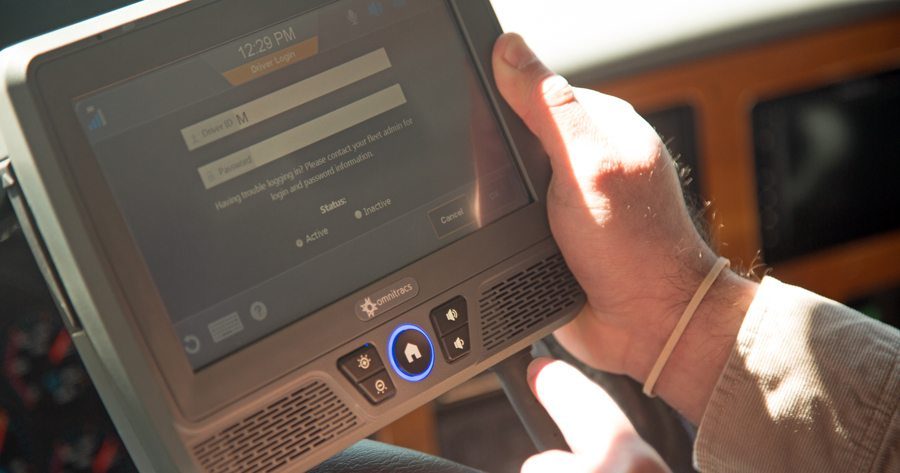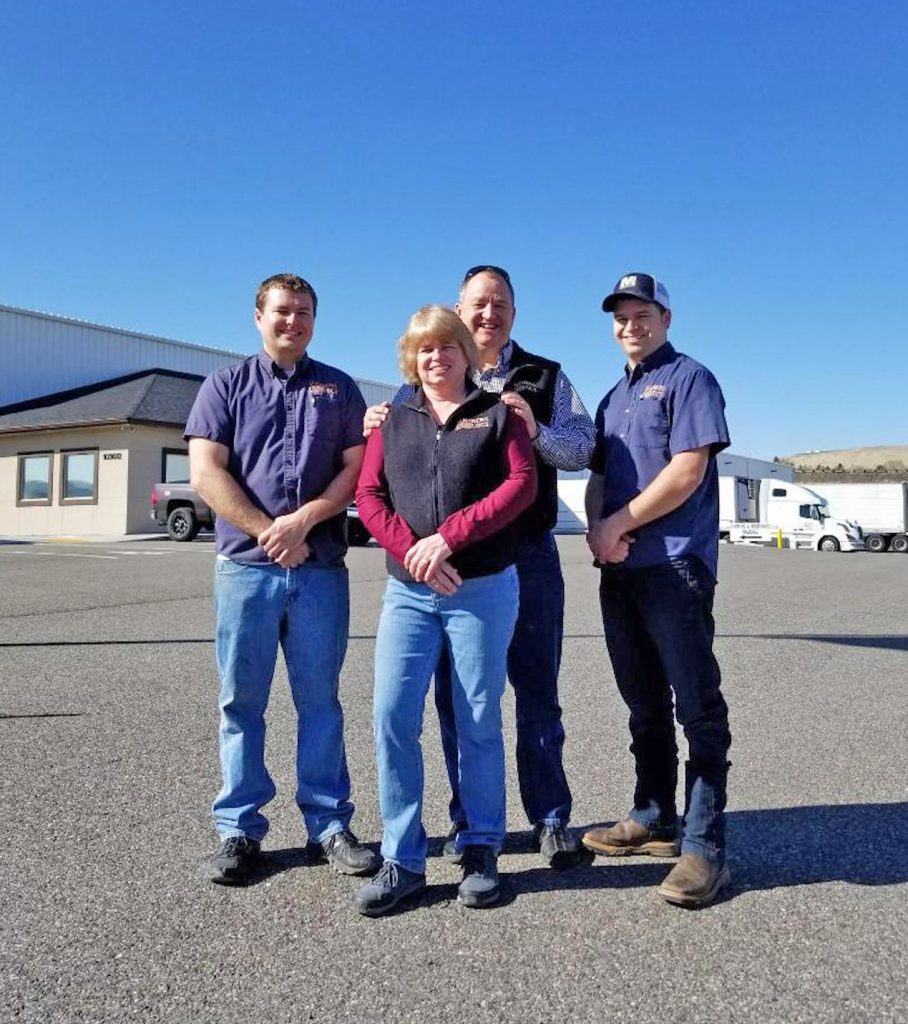
Home » New federal regulations aim to keep workers safe, help track shipments
New federal regulations aim to keep workers safe, help track shipments

April 12, 2018
Kennewick business owners support use of required electronic logging devices
The transportation industry is feeling the effects of new regulations that went into effect at the end of 2017. After a 24-month phase-in period, the Federal Motor Carrier Safety Administration, or FMCSA, now requires carriers and drivers to use electronic logging devices, or ELDs, to help create a safer work environment and make it easier to accurately track, manage and share data.
The second phase of the congressionally-mandated law will last until Dec. 16, 2019, at which time trucks with automatic on-board recording devices must use self-certified ELDs registered with the FMCSA. The rule applies to most motor carriers and drivers who are required to keep records of duty status. It includes commercial buses as well as trucks.
“For decades, the transportation industry had been run by a driver keeping a logbook. An all paper-based, all honesty-based system. The compliance and auditing were not there,” said Robert Thompson, who co-owns Vintners Logistics LLC with his wife, Shari.
Their Kennewick-based business has about 20 trucks in operation and a federal- and state-bonded wine warehouse with 160,000 square feet of temperature- controlled space. With more than 300 wineries and a plethora of vineyards within 75 miles of the company’s campus at 103612 E. Wiser Parkway, Vintners Logistics drivers are always on the move.

“We actually pick up a lot of the hand-picked wine grapes throughout Eastern Washington, and we put them immediately into a refrigerated trailer. Literally, we are there when the fruit is harvested,” Thompson said.
And while there’s some grumbling in the transportation industry about the new regulation, Thompson said it’s not about big brother keeping an eye on industries—it’s about the safety of employees.
“People are complaining that it’s taking longer for deliveries. No. Actually, people are driving the speed limit and taking their correct breaks,” said Thompson, who put ELDs in his trucks 18 months prior to the implementation of the FMCSA’s second phase. “It’s more of a level playing field for those who are playing by the rules.”
Prior to the new rule, the driver’s supervisor would inspect every logbook weekly to look for violations, he said, such as maximum driving time limits and designated rest breaks.
“There are quite a few in the industry who are fighting the regulations and are trying to get exempt,” he said. “The driver needs to be paid a living wage to do their job.”
An ELD automatically records a driver’s time on the road and hours of service. It even monitors a vehicle’s engine to capture data on whether the engine is running or moving and the number of miles driven.
“I can tell you where every one of my trucks are right now and if they’re speeding,” said Thompson, who added that the new system is good for the clients as well. “It’s really helped with customer service. I can tell you the driver is on 405 and will be there in 15 minutes.”
Since Vintners Logistics opened in 2007, it’s doubled in warehouse space and has available land for another 80,000-square-foot warehouse if needed down the road. And it’s not just the company’s vehicles that have state-of-the-art technology. Constructed with phenol-free products and built to maintain temperature and humidity, Thompson said environmental measures in the warehouse are tracked and logged 24 times a day, 365 days a year.
“In the wine industry, they don’t like a thing called TCA—cork taint—and so our facilities are super clean. We do air samples, not parts per million, not parts per billion, but parts per trillion,” he said. “That way a customer can pull up five years ago at 1 in the afternoon and they can see we stay within those tolerances.”
In November 2017, the American Institute of Banking audited the company for food safety and sanitation practices. Thompson said Vintners Logistics received 990 out of 1,000—the highest score the inspector had ever given an operating distribution center.
“I am proud of my team and the score that we earned because it validates the passion (that) we have to provide safe, clean warehouses and fleet for our customers,” he said.
While Vintners Logistics services a large number of wineries throughout the region, warehousing and transportation services are not limited to the viticulture industry. The company also does business with snack food processors, beer and spirits distributors, ingredient manufacturers and more.
Although Vintners Logistics is ready for the third phase—full compliance of ELDs by 2019—the House Transportation Committee noted the mandate could be financially burdensome on small carriers, projecting it to cost more than $2 billion to implement.
However, in writing the rule, the FMCSA alleges it recognizes the cost concerns and notes that smartphones, tablets and handheld devices can be used as long as the system as a whole meets ELD requirements, including a hardwired connection to the truck’s engine.
Local News Transportation
KEYWORDS april 2018





